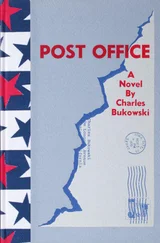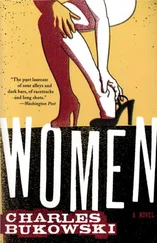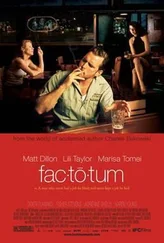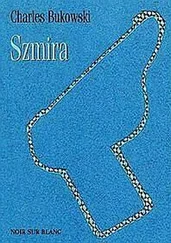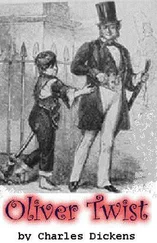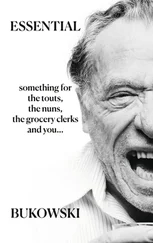Her new doctor thought her vision problems might be from leukemia in the brain. He urged a kind of low-grade chemo, immediately, a syringe of it pushed in to linger in her brain fluid. Actually, he said, it’s a lot better than it sounds. She refused: nothing till the tests came back.
Wouldn’t you know, the numbers came back. Turned out she’d been drinking too much water, which had been clearing out her system, causing all kinds of imbalances, which may have played a role in her vision problems. It raised the possibility the woman’s vision problems weren’t caused by brain cancer. It also was eminently possible medicines had caused her muscle weakness and the problems with her gait, which was why she’d been so unsteady. The hospital corrected the problem by giving her different steroids. Instead of water, doctors had her drink Gatorade. She was released in four days.
And this, the woman being right about not getting the chemo injected into her brain, would indeed have been a nice little we-really-did-know-better-than-the-doctors type success story, high-fives all around — that is, if the cancer had indeed subsided after the woman had switched to Gatorade. But we all know, Gatorade does not cure cancer. When the woman got out of the hospital, she still needed her wheelchair and her ramp and her car service. She had to have someone bring her food and aid her up that little step into the bathroom and get her up from off the toilet. In a matter of weeks some other germ got to her and her lungs were filled with so much mucus she was back in the hospital, and in order to breathe, in order to save her life, she needed this thick tube jammed down her throat. Insurance wouldn’t spring for a private room, they put her in with another sickie, apparently everyone would just have to cross their fingers and hope that a thick vinyl curtain would stop any germs. In the side counter of her small basement dry cleaner’s, the woman used to have a boxy television set with shitty reception, lines of fuzz and white noise, the images going wavy whenever the 7 train passed nearby, and still, through the course of her days at work, she watched game shows. Press Your Luck. Wheel of Fortune. She used to rise every day at dawn and walk her two little Yorkies and do tai chi in the small cement park next to the expressway. She’d helped teach the granddaughter how to organize and alphabetize by using the numbers and names on laundry tickets, and that same granddaughter was now taking up very large chunks of her grad-school-insurance-paid-for fifty-minute therapy sessions complaining that she could not take any more of this, her own life shrinking, she was being forced into a cage, but she also had to take more of this, because the only way things looked like they were going to change was in the wrong direction, and she wasn’t prepared to handle that.
Still. Rumbling around in her head, that fledgling idea.
Her older brother flew in from the West Coast after she shared her idea. And once they’d struck out with the Indian woman who followed around their grandmother’s doctor as if she was his pet, they approached the real man in charge, cornering the doctor in the hallway outside the room their grandmother was sharing, and bringing him up to speed about this drug that hadn’t been FDA approved for leukemia, but had been approved for other forms of cancer, and that even now was being tested in other hospitals. They gave the head doctor the experimental drug’s clinical trial prospectus. The granddaughter pleaded for him to take it home over the weekend. Give it a read.
The doctor told her he knew what they were trying to do. It was admirable. But they were talking about a controlled trial being conducted by another hospital. The doctor had never worked with this drug, and the granddaughter wanted him to prescribe it on an outpatient basis, for a disease it was neither intended nor approved for?
The granddaughter’s voice was steel as she reminded the doctor he sure didn’t have a problem recommending the injection of chemotherapy drugs into an old woman’s spinal fluid before tests had confirmed the cancer had spread there.
The doctor flinched and responded, with some ire, that he made a diagnosis; and the granddaughter did not flinch, and said she knew he did, and he should diagnose this. He should prescribe this for her.
People were openly gawking. Orderlies and nurse-practitioners had stopped in place to watch. The doctor’s voice was searing now as he said the grandmother would take the drug and the odds were she would be dead in a week. Even today her condition was serious. He might need to perform a procedure to clear her lungs that was traumatic to say the least, and was going to require that the granddaughter and her dad finally make a decision on the do not resuscitate form.
The doctor then reminded the granddaughter that hospital policy was to do the most humane treatments for their patients. In reply he was told it was awfully big of him to consider this option so seriously and decide what was so humane.
The granddaughter could not make him prescribe that drug, said the doctor.
They locked eyes and the doctor maintained his gaze and purposefully slowed his words and said the hospital would do their best to get the grandmother stabilized and home to the granddaughter. He told the granddaughter that if the grandmother felt sick again, they could bring her in, or could choose not to. He said he was sorry, he could imagine how the granddaughter must feel.
“You can?” she answered. “You can understand, but still say no?”
THE BLUE OF cloudless skies. A woven mesh, lightweight metal, materials designed to ward away, to shield. Everyone who entered wore one. And of course the usual gloves. The masks.
Alice asked if she at least got a smock. Carmen gave a small laugh, made eye contact with the second nurse. Working as a pair, they made sure that the patient number on Alice’s plastic bracelet corresponded to the numbers on each round glass bottle or plastic bag, asking Alice when her birthday was, then checking that item off their list. Carmen showed Alice each bottle, explaining: This is an antibiotic drip of penicillin. This is Sapeptamonizene.
In the two big windows the sky had darkened, the snowfall thickening even further, and between this and the colored crepe paper over the lights, the near side of the room was enveloped in gloom. Carmen asked if it was okay to take down the mood paper, they needed to be able to see everything. Alice looked disappointed but nodded, then mouthed out her recognition of the second nurse, the name emerging as a question. Requita winked back, kept on hooking up the glass bottles of cloudy drips, the transparent bags bloated with mucus-looking liquid. Above the battery pack, an almost ghostly tree formed, branches thick and limbs spreading, tubes running down toward Alice’s port like so many vines. Carmen was using a red Magic Marker to write on Alice’s skin the current military time and date, so the next nurses would know when to change dressings, replace catheters; Requita was casting evil eyes toward the battery pack’s infernal beeping. Now she rolled back the sleeves of Alice’s robe, began wrapping gauze around Alice’s forearms; she wanted to ensure Alice’s arms stayed warm. This would help the medicine circulate.
“We’re putting you on a steroid,” she said. “It’ll run through the course of the consolidation. It makes you feel energetic, even a little high.”
“With any luck,” Carmen added, “you’ll start that appetite.”
Near the entrance, Dr. Eisenstatt began fitting his arms into his blue smock, leaving the strings that were supposed to go around his neck untied, giving the smock a looseness, a droopy scoop around his upper chest. When he stepped forward the nurses ceased jawing. The doctor’s forehead was flushed; his eyes darted, wide, a bit wild, but disciplined. He acknowledged Oliver, checked that the nurses were properly subdued.
Читать дальше


